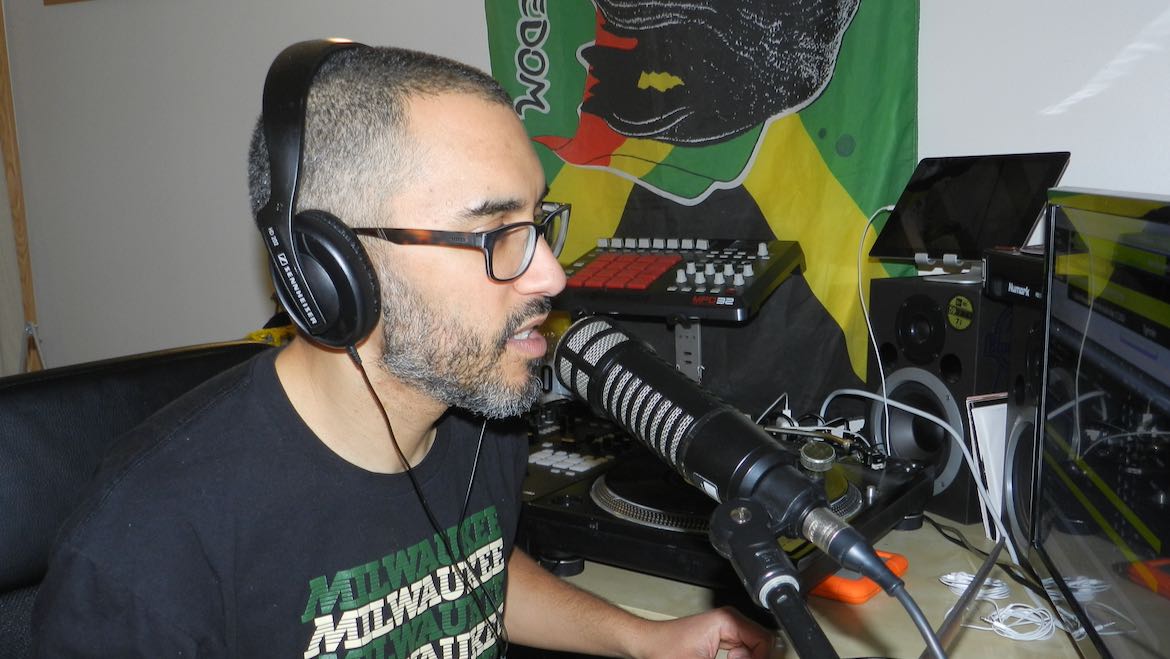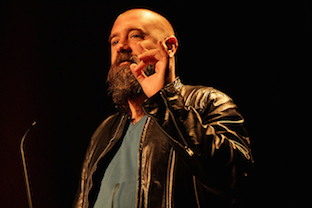Music stations form collaborative to serve communities during coronavirus pandemic

Zahra Lee
Radio Milwaukee PD Jordan Lee hosts an air shift from a home studio.
When public media stations began developing local responses to the coronavirus crisis in mid-March, I started working to build digital resources for music stations to share their strategies and best practices.
With the help of colleagues at 25 music stations, Paragon Media Strategies built a spreadsheet of tactics that stations initiated as early responses to the epidemic’s spread and impact in their communities. The stations moved quickly and in different ways to help their audiences, local artists and communities during this heightened time of need. I initially wrote a series of blog posts summarizing the stations’ responses.
Now with the help of the Public Radio Program Directors’ Association, the National Federation of Community Broadcasters and Current, we’re inviting all public radio music stations to share and build on these collaborative resources.
On Monday, Paragon Media Strategies created a new Facebook group for content and marketing managers at music stations to help each other navigate through the COVID-19 crisis. Tactics of the initial group of 25 stations are accessible to members.
The Facebook group is open to the entire community of public radio music stations — including jazz, classical, Triple A, urban alternative and eclectic formats. We welcome NPR-affiliated and volunteer-driven community radio stations to the collaboration and invite you to submit your ideas.
First, you need to join the Facebook group, “COVID-19 Collaboration for the Public Radio Music Station Community.” Once you’re approved, you can add new posts. To help everyone sort through the ideas, please tag your posts by topic, such as “features,” “music,” “artist support” or “social media.”
You can also strategize and commiserate with members who work at other stations. Ask questions of programmers, get important details and instructions behind their tactics, learn about the best ways to implement them. We want all boats in the public media music community to rise together.
While Paragon started this Facebook group, we do not intend to manage or direct the collaboration moving forward. This is for staff of public radio music stations to grow and utilize in ways that serve their needs and common goals.
Public radio stations play vital roles in communities across
the country. During times of crisis, our responses at the local level are
especially important. I commend public radio’s NPR News stations for being
nonpartisan and delivering fact-based, in-depth local and national news
coverage. The roles of local music stations are different, but just as
important. As supporters of local music communities and artists, they provide a
form of entertainment, appreciation of artistry and a source of relief when the
drumbeat of news is too much.
Without corporate ownership or layers of management, these locally curated music stations are incredibly creative and nimble. And right now, these stations are showing their listeners — and all radio broadcasters — how quickly they can spin on a dime and create new content, ramp up engagement and increase community support in a time of need. This is when the missions of public media stations, the underpinnings of the local communities that they exist to serve, move to the forefront in every decision about how to respond the needs of listeners, artists and the communities where we live.
The collaborative responses of public media that I’ve witnessed in the past few weeks has been both overwhelming and rewarding. They’re blunt reminders of the reasons we all got into radio and what your listeners get from tuning into your stations.
Mike Henry is CEO of Paragon Media Strategies, a Colorado-based company that advises public radio stations and groups. He’s a co-founder and brand manager of VuHaus Group, which produces the digital video series NPR Music Live Sessions, and is also working on a CPB-funded initiative to create a new Urban Alternative music format for public radio.






